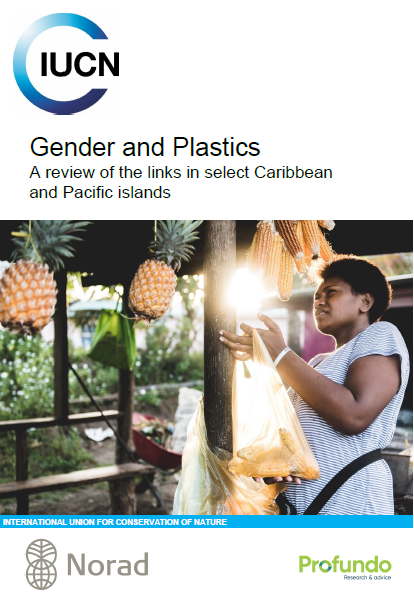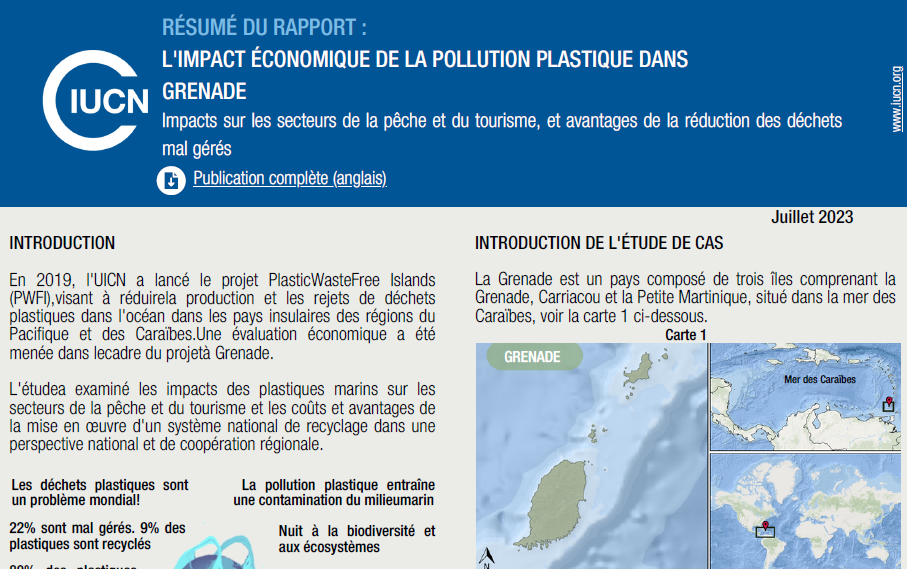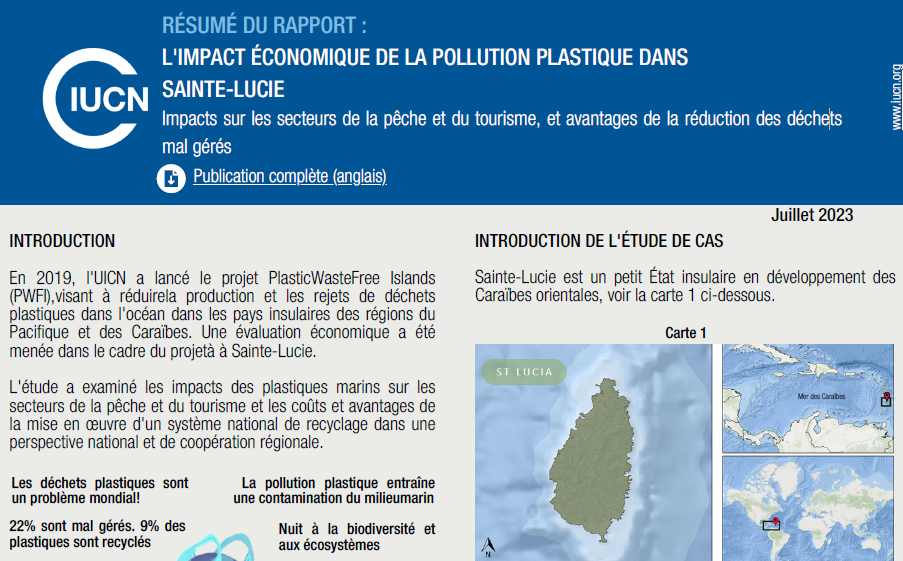Plastic Waste Free Islands Gender Study
To inform gender-responsive programming for the Plastic Waste Free Islands project, IUCN commissioned a study to provide an analysis of plastic pollution in the tourism, waste management, and fisheries sectors of the PWFI islands in the Caribbean (Antigua and Barbuda, Grenada, and Saint Lucia) and in the Pacific (Fiji, Samoa, and Vanuatu). The overarching question this study sought to answer was: "What are key human rights issues arising from plastic pollution in the tourism, fisheries, and waste management sectors in the PWFI islands and how do these issues impact men and women differently?"
In answering this question, this study seeks to deliver a socioeconomic and sociocultural analysis of the gendered power dynamics, opportunities, and constraints in the context of plastic pollution in the relevant sectors.
Chapter 1 outlines the methodology used to carry out the analysis in this report, as well as key concepts and terms which are used throughout the gender analysis. In Chapter 2, is a summary of the common linkages between the life cycle of plastic (consumption, disposal, management) and gender inequality. Chapters 3 and 4 present the findings of the gender analysis of plastic pollution in relevant islands and in the Pacific (Fiji, Samoa, and Vanuatu) and Caribbean (Antigua and Barbuda, Grenada, and Saint Lucia), respectively. The chapters provide a gendered perspective of the issues of plastic pollution and tourism, fisheries and waste management specifically. Wherever possible, information from the relevant islands had been explored and included, and where this is lacking, information from the region has been considered. Any gaps in information have also been highlighted.
Finally, in Chapter 5, there are overall conclusions from findings and recommendations both for gender mainstreaming in the IUCN’s PWFI programme specifically, and to the wider field of advocacy on reducing and eliminating plastic waste in these regions.




